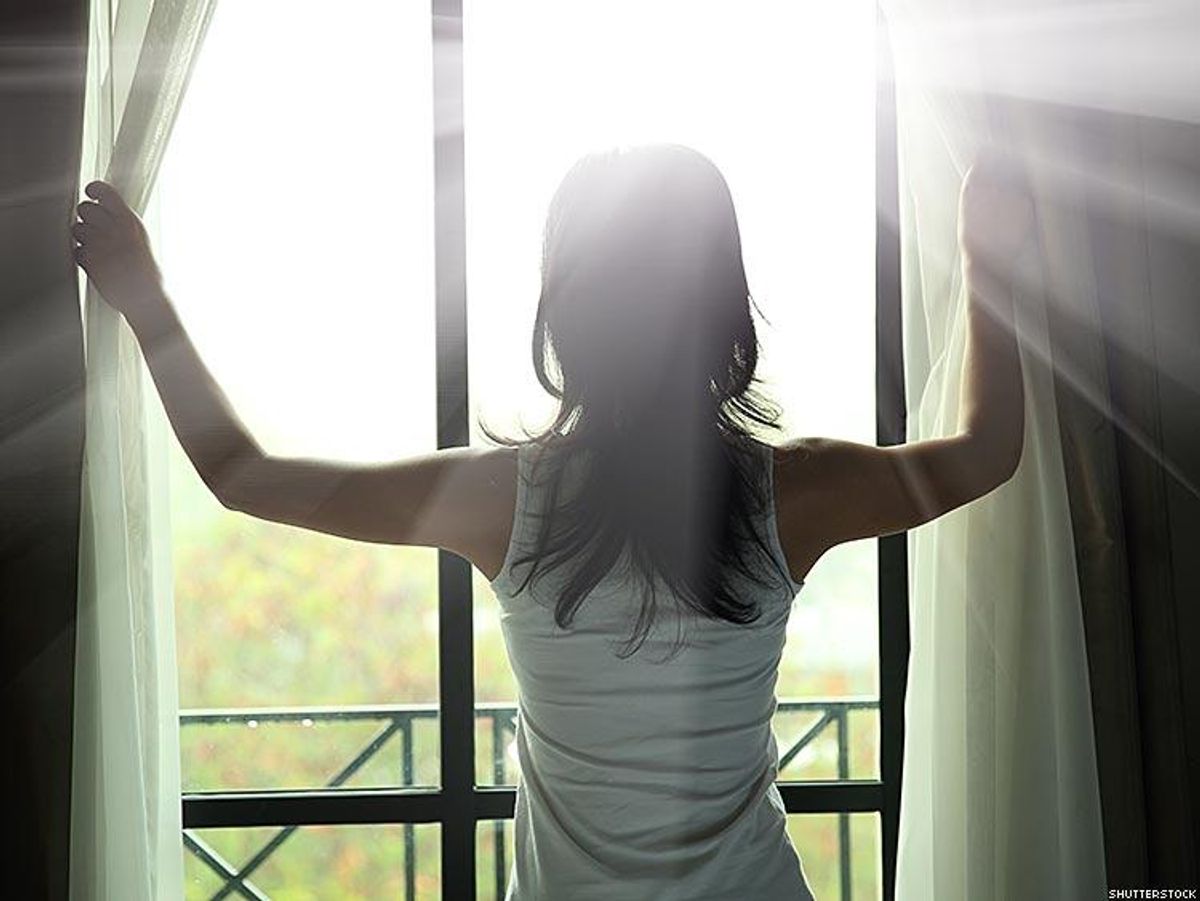I've known that I was attracted to people of both genders for a long time -- since long before I knew the word bisexual. I remember how excited I was as a teenager to discover that there was actually a word for people like me. As an adult, some of my crushes, dates, and relationships have been with women, and some have been with men. As it happens, the person I fell in love with and have committed to spending the rest of my life with is a wonderful and amazing man.
Being out can be tricky for bisexuals because our sexuality is often invisible. Bisexuals who are with same-sex partners are often assumed to be gay, and bisexuals who are with opposite-sex partners are often assumed to be straight. Plus bisexuals are sometimes viewed with suspicion or confusion by both ends of the Kinsey scale, gay and straight alike. All of this, coupled with the fact that I hate few things more than awkwardness and making other people feel uncomfortable, has meant that until relatively recently, I've been out only in patches: the search committee who hired me at First Congregational Church in Natick, Mass., where I am an associate pastor; a lot of my friends, but not all; and some family members, but not most.
Because bisexuality is so misunderstood, I told myself that rather than coming out completely, I would be doing more for LGBT rights if I kept my sexuality to myself, rather than risk muddying the waters for those who aren't so well-versed in the whole LGBT alphabet soup. But I had a change of heart two years ago when the U.S. Supreme Court heard arguments in the Perry case over whether or not California's Proposition 8, prohibiting same-sex couples from marrying. was constitutional. In response to news about the case, my Facebook feed was flooded with status updates, posts, and online conversations about the case -- both pro and con. Sadly, most of the posts against marriage equality were generated by family and longtime friends of mine.
It quickly became clear to me that my decision not to be out as a bisexual person was a lie I told myself out of fear of alienating some members of my family. But those posts showed me that the waters could not possibly get any muddier. After all, how could the dialogue with those in my life deteriorate further, given that it began with comparing the right to civil marriage to pedophilia, incest, and bestiality?
As I contemplated coming out as bisexual to those family members, I realized just how important it was to me for them to understand that when they talked about how "the gays" were destroying the institution of marriage or brainwashing our children or eroding our moral values, they were talking about me. They were talking about Summer Finnell Shaud, their sister/aunt/cousin/classmate/friend/pastor/whatever. They were talking about me and millions of other regular people who want only the same legal rights and protections that they enjoyed. So I came out as bisexual. On Facebook.
As we prepare to mark Celebrate Bisexuality Day on Wednesday, I think it's worth coming out again. Just to remind folks that I'm still here -- and still bisexual. What I learned by coming out two years ago, particularly with my congregation, is that coming out is just the beginning. Not a single person in my church has reacted negatively to my coming out (at least not that I'm aware of), but for many, it prompted curiosity and a desire to know more. I have had a number of conversations with parishioners and fellow staff members since then who have wanted a kind of "bisexuality 101." While many of those conversations with congregants were sometimes awkward for me, they were clearly and invariably coming from a place of love and a sincere desire to understand. They were also a reminder to me that faith communities must minister to the spiritual and social needs of bisexual people -- pastors and congregants alike. Perhaps the best way to do this is by creating "bisexually healthy congregations," a termed coined by the Religious Institute to refer to congregations led by clergy who are educated about bisexuality and where bisexuality is explicitly addressed in the church's youth and adult sexuality education.
My Facebook-inspired coming-out two years ago took place during Holy Week, when I was deep in preparation for our Maundy Thursday worship service, the church's commemoration of Jesus washing the disciples' feet as an act of love and acceptance. That reflection, coupled with my experiences coming out, has taught me that we know love by what love does. In the end, when we are supported in our journey toward authentic and abundant life, love wins.
 SUMMER SHAUD is associate pastor of First Congregational Church in Natick, Mass., and a contributor to the congregational guidebook Bisexuality: Making the Invisible Visible in Faith Communities.
SUMMER SHAUD is associate pastor of First Congregational Church in Natick, Mass., and a contributor to the congregational guidebook Bisexuality: Making the Invisible Visible in Faith Communities.


 SUMMER SHAUD is associate pastor of First Congregational Church in Natick, Mass., and a contributor to the congregational guidebook Bisexuality: Making the Invisible Visible in Faith Communities.
SUMMER SHAUD is associate pastor of First Congregational Church in Natick, Mass., and a contributor to the congregational guidebook Bisexuality: Making the Invisible Visible in Faith Communities.














































































